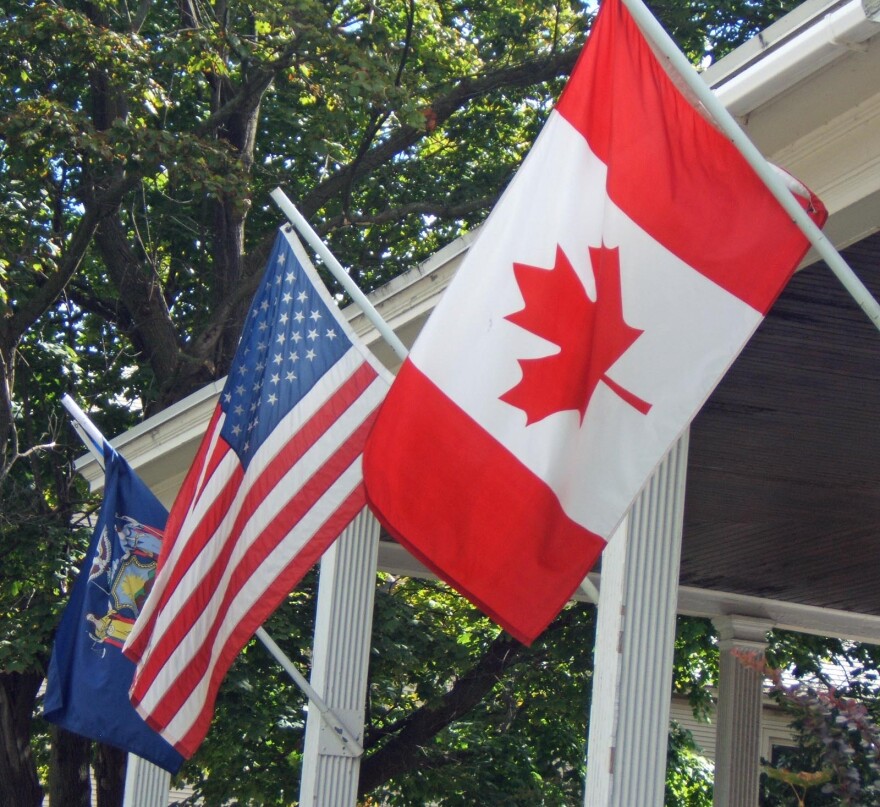Every spring the Center for the Study of Canada at the State University of New York at Plattsburgh presents its Distinguished Quebec Address featuring leaders from academia, business or politics. Wednesday’s speaker focused on “Nationalism, Pandemic Management and Electoral Politics in Quebec.”
The Distinguished Quebec Address began in 2005 when the college launched its Institute for Quebec Studies. It is considered by the Canadian Studies department its signature annual event. SUNY Plattsburgh Director of the Center for the Study of Canada Dr. Christopher Kirkey said they have invited prominent people who have made a profound contribution to Quebec.
“Since 2005 we’ve offered this forum which has showcased business leaders, government officials, professors and the like to speak on a range of significant issues of concern to Quebec and the United States." Kirkey continues, "Past speakers over the years have included several ministers from the Minister of Health and Social Services to the Minister of International Relations for the Francophonie. We’ve had the national health columnist for the Globe and Mail. We’ve had an array of wonderful speakers.”
Speaking via Zoom, McGill Institute for the Study of Canada and McGill University Professor of Political Science Dr. Daniel Beland provided an historical overview of Quebec politics as a backdrop for coming provincial elections.
“The party currently in power that’s been in power since 2018 is the Coalition Avenir Québec, which is a very recent party. It was created only in 2011. It’s a right-of-center party and a nationalist party who advocate for greater provincial autonomy within Canada." Beland notes, "And the CAQ is centered around its founder and only leader so far Francois Legault. So Francois Legault is a major figure in Quebec politics and he has really strong control over this party that he helped create.”
Quebec residents are scheduled to go to the polls by October 3rd. Dr. Beland says current Premier Francois Legault and his party has remained popular and competing parties are struggling to gain support.
“When we talk about the elections that are coming up we see that the CAQ is still above 40 percent in the polls. Up to 2018 the two main political parties in Quebec for decades in a row were the PLQ (Quebec Liberal Party) and the PQ (Parti Quebecois). The PLQ is not in good shape and the PQ is on life support." Beland cautions, "Of course we are just in March so a lot of things can change in politics. But right now it seems that the CAQ has succeeded in gaining strong support among Francophones because of its nationalist agenda, because of its kind of middle-of-the-road economic and social policies and because of its response to the pandemic.”
Dr. Kirkey moderated questions submitted via the Zoom chat. Many sought clarification of Quebec political issues. Others submitted queries about how the province handled COVID-19.
“What’s the general pulse in Quebec society about the restrictions that were imposed, if you will, by Quebec government and public health authorities regarding the COVID-19 pandemic?”
Beland responds, “There was quite a bit of tolerance up to quite recently I would say. But I think with Omicron the second curfew there’s a fatigue. Not just again in Quebec but all over Canada and across the world. Because so many people in Quebec have been vaccinated many of them expected that they would be able to resume their normal activities and Omicron was a big shock. I would say that support is a bit more fragile than it was at the beginning of the pandemic.”








